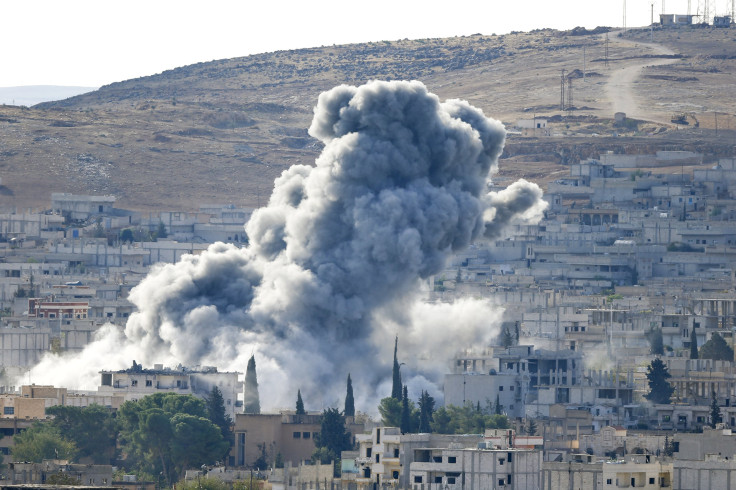Islamic State In Kobani: US Coalition Airstrikes More Effective After Coordination With Kurdish Forces

Closer coordination with Kurdish ground forces in Kobani have made U.S.-led coalition airstrikes more effective against the Islamic State group, according to reports from the ground Wednesday. Combined U.S. and Arab airstrikes killed at least 32 Islamic State fighters this week.
The coalition has stepped up its bombing campaign against the Islamist militants after they appeared poised to overtake outgunned Kurdish forces in the Syria-Turkey border town of Kobani. U.S. officials said they conducted 21 airstrikes on Monday and Tuesday.
Kurdish officials said the main Syrian Kurdish force, the YPG, relayed coordinates of Islamic State group forces to coalition operators. Kurdish fighters said they need weapons and supplies to continue the fight in Kobani, which has devolved into a brutal close-quarters combat fight across the city. One Kurdish fighter told BBC that “there is no time for sleep” in Kobani and that he and his fellow soldiers would defend the city until the last fighter, but that they were heavily outgunned by the Islamic State group.
#Kobane update: ISIS flag on sandy hill on east side of town is gone. There is still only one black flag on white building East Kobane.
- Jenan Moussa (@jenanmoussa) October 15, 2014The Islamic State controlled about half of the city earlier this week, which has largely been abandoned by its residents. Around 200,000 people from Kobani and the surrounded area have fled in the wake of the Islamic State group offensive.
Kobani sits on the Syria-Turkey border. Turkey has received criticism from the United Nations and columnists abroad for blocking the movement of Kurdish fighters between Turkey and Kobani. Turkey has fought a long conflict with its own Kurdish independence movement, but the main parties came to a cease-fire agreement in 2013. A recent Turkish bombing raid against Kurdish rebels and its strict border control operations threaten to reignite violence. Progress was made this week when Turkish politicians voted to allow coalition forces to operate from Turkish military bases and for the training of moderate Syrian rebels inside Turkey.
U.S. President Barack Obama said his administration was “deeply concerned” about Kobani in a meeting with coalition military leaders on Tuesday and reiterated the U.S. position that a more “capable” ground force is needed to save the border town.
© Copyright IBTimes 2025. All rights reserved.





















